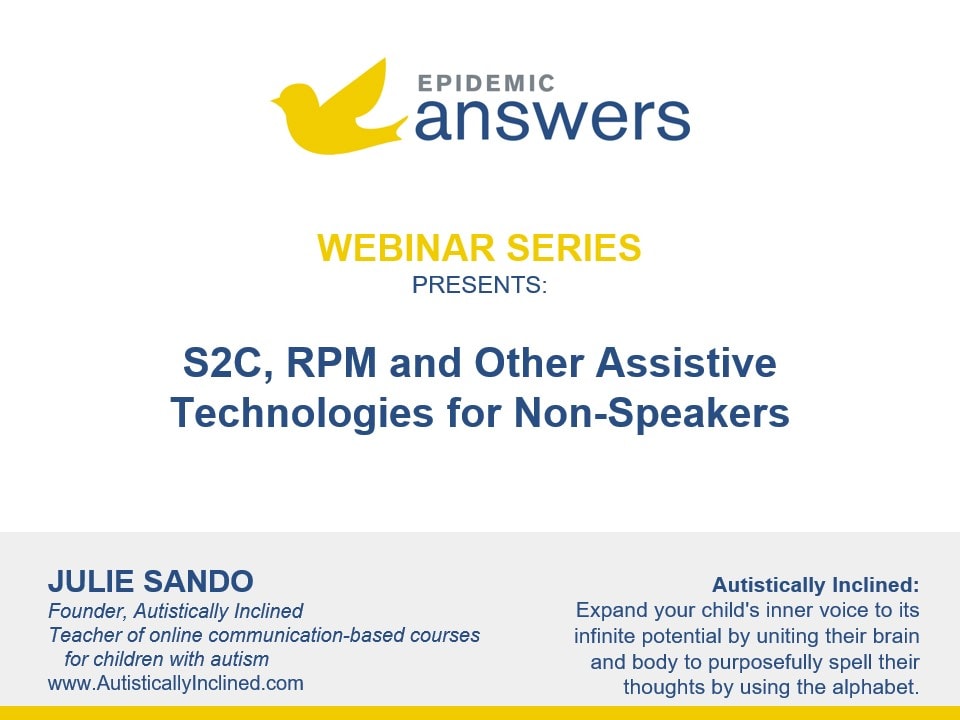Many parents report spontaneous improvement in the complexity of expressive language in their children after they took choline that was recommended to improve motor planning.
What Is Choline?
Choline is essential for brain development. In 1998 the National Academy of Science recognized it and established a daily requirement of 425–550mg. Research shows that lack of choline in a mother’s diet during pregnancy and lactation can permanently limit brain capacity later in life. Individuals must ingest choline.
Because primary dietary sources are liver, eggs, wheat germ, lecithin and soy, it is unlikely that many kids, especially those on elimination diets, get enough of this critical nutrient.
What Is Complex Language?
Developmentally, children progress from labeling items, to asking for what they want, a form of demand or expressive language. The next step, the most difficult for many children on the autism spectrum, is conversing and answering “why”, “where” or “what” questions, all components of complex language. Clinically, many children on the spectrum get stuck at the level of expressive language, transitioning to the next level slowly or not at all.
Making conversation requires a specific type of motor planning in the language area of the brain that allows finding, prioritizing and sequencing words, rather than simply memorizing or scripting, as is seen in receptive language. The part of the brain that labels objects is different from the section that generates conversation or answers questions such as “What happened at school today?”
What Are the Functions of Choline?
Choline has several important purposes. It is needed to:
- Assure structural integrity and signaling ability of the cell membrane, the “gate-keeper” that surrounds and protects every cell. Material can enter a cell and neurotransmitters can signal a cell only as the membrane allows. A healthy cell membrane contains phosphatidylcholine (PC) to regulate its permeability. Insufficient PC compromises this regulatory function.
- Contribute small chemical structures called methyl groups that enable methylation, a key phase of detoxification. Methylation is also important for gene expression, nutrient activation (especially for vitamin B-12), and cell membrane stabilization.
- Build acetylcholine, a neurotransmitter that regulates memory, motor planning, and executive functions such as sorting and prioritizing.
How Does Choline Enhance Complex Language?
The part of the brain where motor planning for language takes place is under the influence of acetylcholine. The combination of copious amounts of acetylcholine along with permeable membranes composed of sufficient phosphatidylcholine appears to be the magic formula for improving complex language in many children.
Choline Supplementation
Research supports choline supplementation. Rat pups who took choline showed enhanced memory and attention lasting throughout their lifetimes. Researchers could even identify those animals that took choline supplements in infancy from their behavior as aging rats.
Because foods alone cannot provide sufficient amounts, extra choline must be added to obtain therapeutic benefit. Choline as a dietary supplement comes in several different versions:
- Choline bitartrate is found in most multiple vitamins, but rarely used as a separate supplement.
- Alpha glyceryl phosphatidylcholine (GPC) and DMAE are two other forms available. GPC is thought to slow brain aging by increasing motoric response time. DMAE may improve symptoms of attention deficit disorder, with irritability as a side effect.
- For complex language development, phosphatidylcholine (PC) is preferred.
For children who cannot swallow capsules, try liquid PC, Xymogen Phosphaline, available from My Village Green. Dosage is ½ to 1 tsp. per day. Xymogen Phosphaline is strong-tasting and thick, but you can mix it with apple or pear sauce, spread it on a pancake or camouflage it with maple syrup.
The only side effect of phosphatidylcholine may be loose stools because it is fatty. PC is generally derived from soy, but because it contains no soy protein, it is safe for most children on gluten-, casein- and soy- free diets. Children with serious soy reactions should avoid this product, however.
Bottom line: Choline is safe and effective as a brain membrane builder. It may be the secret weapon for taking language to the next level.
Still Looking for Answers?
Visit the Epidemic Answers Provider Directory to find a practitioner near you.
Sources & References
Adam, G., et al. The influence of choline treatment on behavioral and neurochemical autistic-like phenotype in Mthfr-deficient mice. Transl Psychiatry. 2020 Sep 18;10(1):316.
Gabis, L.V., et al. Improvement of Language in Children with Autism with Combined Donepezil and Choline Treatment. J Mol Neurosci. 2019 Oct;69(2):224-234.
Hamlin, J.C., et al. Dietary intake and plasma levels of choline and betaine in children with autism spectrum disorders. Autism Res Treat. 2013;2013:578429.
Jadavji, N.M., et al. B-vitamin and choline supplementation increases neuroplasticity and recovery after stroke. Neurobiol Dis. 2017 Jul;103:89-100.
Langley, E.A., et al. High maternal choline consumption during pregnancy and nursing alleviates deficits in social interaction and improves anxiety-like behaviors in the BTBR T+Itpr3tf/J mouse model of autism. Behav Brain Res. 2015 Feb 1;278:210-20.
Li, Y., et al. Association between MTHFR C677T/A1298C and susceptibility to autism spectrum disorders: a meta-analysis. BMC Pediatrics. 2020(20)449.
Resseguie, M.E., et al. Aberrant estrogen regulation of PEMT results in choline deficiency-associated liver dysfunction. J Biol Chem. 2011 Jan 14;286(2):1649-58.
Skripuletz, T., et al. The choline pathway as a strategy to promote central nervous system (CNS) remyelination. Neural Regen Res. 2015 Sep;10(9):1369-70.
Zeisel, S.H. Choline: Critical Role During Fetal Development and Dietary Requirements in Adults. Annu Rev Nutr. 2006;26:229-50.




